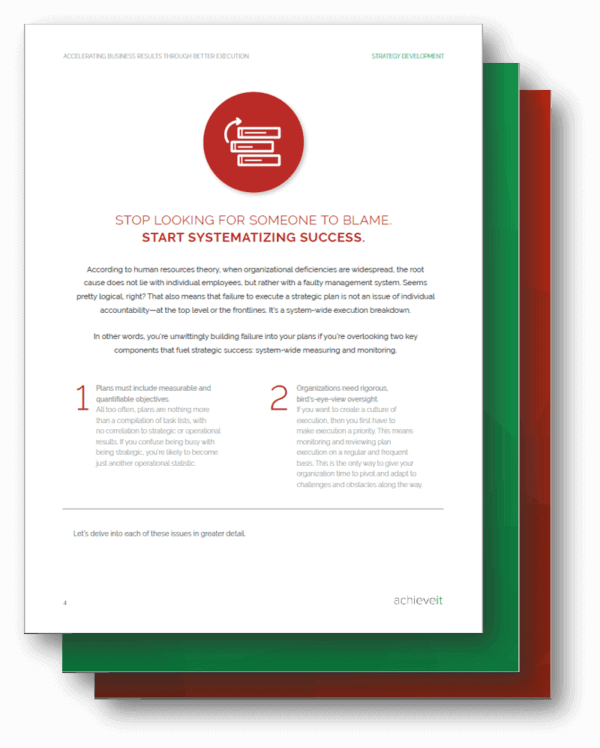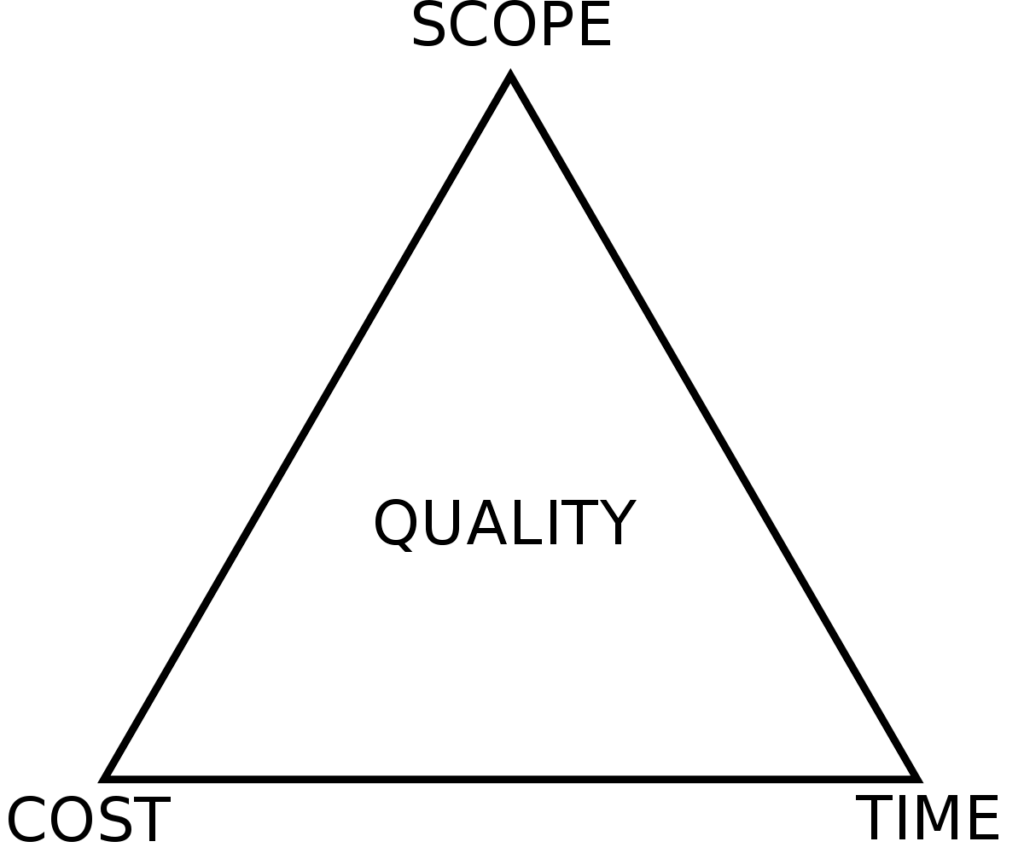After working with hundreds of customers over the years, I’ve been fortunate to have many conversations about strategic planning and strategy execution. In many cases, either formally or informally, I give common advice across organizations of all shapes and sizes.
The biggest piece of advice I give to anyone asking for strategic planning guidance?
It’s simple — less is more when it comes to your strategic plan. If your plan has hundreds of items, you’re doomed before you even begin.
If I’m able to provide an additional piece of advice, it’s followed with “don’t be so hard on yourself.”
The plan you put all that time and effort into won’t always get executed at the level you expect. In fact, it almost never will as strategic priorities change and executing strategy is challenging.
While you undoubtedly want to achieve everything, the goal should be to shoot for best-in-class strategy execution. And that’s not at 100% strategy execution. It’s actually much closer to around 70%, with consistent improvement year over year.
So how do you blend both pieces of advice and make this your best strategic planning cycle ever?
FREE RESOURCE
Accelerate Business Results Through Better Strategy Execution
Download this guide to understand the key components of effective plan review and monitoring, while creating measurable and quantifiable objectives.

Reframe your strategy execution thought process
At this point in my career, I’ve seen and worked on thousands of plans. The one issue I see, regardless of industry, is that strategic plans are too large.
Depending on your experience you might say, “That doesn’t sound like a problem to me! That just means the organization has a lot of great ideas for the future.”
You’re not completely wrong if that’s your position. A great strategic plan should represent the best ideas from the subject matter experts at your organization.
What often is forgotten is the concept of the Iron Triangle — the invisible force that controls how much we actually can accomplish.
Using the Iron Triangle to improve your strategic planning process
What’s the Iron Triangle you might ask? You may know it by its other name, the triple constraint.
The triple constraint model defines that all plans and projects are driven by three primary factors:
- Cost
- Time
- Scope

The triple constraint, simply put, means there is no free lunch when it comes to execution. If one factor increases, it must be met with changes in the other factors to even out the triangle.
If you want to move fast, then you need to pull back on scope, and costs will increase.
Don’t have the funds to properly execute strategy? Then you need to expand your time horizons, reduce your scope, or accept decreased quality and outcomes.
How does the Iron Triangle impact strategy development?
What this triangle represents is the reason why large plans rarely get executed. You can work with your team to create 75 strategies and 150 tactics but what are you willing to give up to accomplish everything?
We don’t have an unlimited budget, time, or the ability to have perfect scopes.
So, what are you willing to give up?
Someone on your leadership team might have an amazing idea for a strategy this year. But someone in the room needs to drive the hard discussion. They need to challenge the ideas, not simply to challenge them, but to ensure the Iron Triangle is managed.
Ask the hard questions like:
- What metric will this strategy improve if it’s executed perfectly?
- Are your proposed due dates realistic?
- Do we have the budget to accomplish this strategy within the timeframe listed?
If you take this approach to strategy development, you’ll tend to weed out strategies that will impact successful execution. The great ideas with poor timing, the crunched projects that don’t have an additional budget, and the ideas that don’t have strategic alignment to the rest of the plan.
The outcome of this new planning and execution process? A smaller, more refined plan that has a chance to be executed at a high level and restore your confidence.
About AchieveIt
AchieveIt is the platform that organizations use to get their biggest, most important initiatives out of the boardroom and into reality. There are so many great ideas never quite make it across the finish line because there’s no real way to keep everyone on track. You’ve got to:
- Get everything in view in real-time
- Get everyone engaged while also holding them accountable
- Get every possible advantage drawing on the experience and best practices of our execution experts
That’s why everyone from global corporations, to regional healthcare systems, to federal agencies have turned to AchieveIt for their Integrated Plan Management. Let’s actually do this.
Ready to improve your plan execution?
Organizations of all types leverage AchieveIt to manage, execute, and connect their most important initiatives. Replace manual processes & siloed systems with interconnected plans in a single, automated platform.



